Life under Hamas
“I’m not trying to make you think I’m a hero. I’m just one of thousands of people who have dealt with similar situations and worse,”
A new series of short videos released earlier this week have shown a new insight into the day-to-day lives of ordinary Gaza Strip residents. The eight videos are the first of three lots in which courageous Gazans tell the world what life is like under the brutal rule of Hamas. Their authentic stories are about common problems that are drastically exacerbated by Hamas’s control, ordinary people with expectations, aspirations and dreams – from running a pharmacy to working as a journalist to simply dancing – that they are forbidden from realising.
The participants consented to be interviewed for the sake of relaying their ideas and experiences to an international audience, noted Centre for Peace Communications (CPC) president Joseph Braude, adding, “They want these stories to be heard.”
Names have been changed, and CPC employed animation and voice-altering technology to protect the speakers’ identity.
“Don’t Tell Me How to Resist”
Everywhere Iyad turns in Gaza, he finds Hamas’s leaders looking back at him. Their portraits and slogans cover the walls and alleys. “Is this a city or a military barracks?” he asks. When his fellow Gazans declare themselves “ready for martyrdom,” he hears only despair. “Okay, Palestine is our cause, and it is a just one,” he says, “but that doesn’t mean you should keep getting Palestinians killed, again and again, without any result.”
While open criticism of Hamas’s war footing remains rare, a closer look shows a population questioning the wisdom of perpetual conflict. Last August, on a rare occasion when Hamas refrained from firing rockets into Israel during a period of escalation, 68 per cent of Gazans supported the decision. Another 2022 poll found that 53 per cent of Gazans agree at least somewhat that “Hamas should stop calling for Israel’s destruction, and instead accept a permanent two-state solution based on the 1967 borders”.
Indications of Gazan discomfort with Hamas ideology and policies, which have been growing, are likely understated, given the recent finding that 62 per cent of Gazans believe “people in the Strip cannot criticise Hamas’s authority without fear”.
“My Brother is Gone”
Fatima’s brother used to work as a street vendor, selling vegetables his mother grew. But Hamas police in Gaza would confiscate his wares, demanding bribes to let him work and threatening him with jail, beatings and worse. The kind of extortion Fatima describes has driven many Gazans, including her brother, to flee the Strip.
“They said he had to open a store, but he would have to beg, borrow and steal money to pay them off. He just couldn’t. For two years they kept going after him,” she says.
“These people have no humanity. Eventually he decided to leave the country … Honestly, right now we don’t know much about him. He hasn’t called for a long time.
“There are a lot of young men like my brother … Whoever leaves this place should never come back.”
A 2018 poll found that 48 per cent of Gazans want to emigrate. As one young man put it, “there isn’t anyone [here] who doesn’t know someone who’s migrated to Turkey to sell his organs to help his parents … Hamas glorifies itself as the resistance to the occupation, but they sit in their palaces with their Qatari passports while we pay the price.”
“We tried to chase them away with stones”
When Hamas police came to cut off power to Ahmed’s home, his cousin, a child with Down syndrome, tried to stop them. They beat him and fired live ammunition at his house.
“The police called for backup of four more police cars. They beat the women, children and anyone else they encountered,” he says.
“We tried to chase them away with stones. It was everyone in the area, chasing away the police with stones until they retreated. It was like we relived the intifada, but not to resist occupation.”
After Ahmed uploaded footage of the incident to social media, the clip went viral. He spent the next three days on the run from Hamas authorities.
“I’m not trying to make you think I’m a hero. I’m just one of thousands of people who have dealt with similar situations and worse,” he says.
A 2017 Human Rights Watch investigation concluded that Hamas authorities harass critics and abuse those in its custody. It noted that after one Gazan journalist asked Hamas leaders on Facebook, “Do your children sleep on the floor like ours do?” he was arrested, charged with “misuse of technology” and instructed by Hamas officers that “it’s forbidden to write against Hamas; we will shoot you.”
“Bring Back the Dabke”
Mariam, a professional dancer of dabke, an Arabic folk style, believes in the power of art to improve the world. But after Hamas gained control of Gaza in 2007, they told her to stop dancing and study Quran instead. When she refused, they began to threaten her family.
“They issued a warning: ‘If you keep doing what you’re doing, you’ll go to prison. We’ll be watching you and monitoring your phone’,” she says.
“When they got tired of dealing with me, they went to my brothers. I took my ambition and the dreams out of my head.
“Maybe you’ll laugh at me but if the Israelis were here, it would be a million times better than Hamas. They didn’t interfere in our personal affairs. Hamas interferes with everything. Gaza needs to be liberated. Not from the occupation but from those among us.”
Mariam is not alone. Since taking power, Hamas has reportedly clamped down on women’s basic freedoms and artistic expressions deemed un-Islamic. In July 2022, Hamas banned street concerts. In 2021, Hamas ruled that women require the permission of a male guardian to travel. In 2018, Hamas blocked the launch of a women’s television channel and banned the opening of a ballet school for girls.
“Bermuda Triangle”
Billions in foreign aid have poured into Gaza. But as far as Isma’il is concerned, the sea might as well have swallowed it. “Gaza is like the Bermuda Triangle,” he says. “Everything that enters, vanishes.”
He says Gazans “should be living very comfortably thanks to so much aid and support”.
“But our ruling faction controls everything,” he says.
“Those of us who have been outside and seen other cultures and peoples, our thinking has changed completely and for the better. We’ve seen calm and stability. We’ve seen people coexisting with their neighbours, peacefully, lovingly and respectfully.”
From 2014 to 2020, UN agencies sent nearly US $4.5 billion worth of aid to Gaza, and Qatar has provided an additional US $1.3 billion since 2012, yet the population lives at a subsistence level.
Hamas alleges that it does not “touch a single cent” of international aid, despite the active role it plays in its distribution. Most of the population is sceptical, however. A recent survey found that 73 per cent of Gazans believe Hamas-run institutions are corrupt. On occasion, Hamas has been caught in outright theft.
“There’s No Making Peace With Them”
Basma, a licensed pharmacist in Gaza, was repeatedly harassed by Hamas over her affiliation with the rival Fatah group. After she opened her own pharmacy, Hamas priced her out of the market, forcing her to shut it down.
“Within six months, I had closed the pharmacy. Every day or two, the licence inspectors from Hamas would come by. ‘These medications have expired,’ they said. ‘These medications are banned.’ It wasn’t true; I abide by all the laws. But they had monopolised the market,” she says.
Hamas rule in Gaza, which began in 2007 after a lethal battle against Fatah and PA officers, has been marked by a combination of violent and non-violent tactics aimed at eliminating all political opposition.
In 2014, Amnesty International documented “serious abuses against Fatah members and former members of the PA security forces in Gaza, including abductions, torture, shootings, and other assaults.”
Less lurid, but more ubiquitous in daily life, are the various means by which Hamas has created a patronage network that bestows benefit on its members while shutting out others. Tens of thousands have been hired and promoted in the civil service based on loyalty to the movement. Meanwhile, doctors and other medical professionals have been summarily dismissed for retaining ties to Fatah.
“A Policy of Muzzling”
Maha once aspired to be a journalist in her native Gaza, but no longer tries. First her Facebook page was taken down. Then Hamas told her, “If you don’t stop, something bad might happen to your family.”
“As I’m sure you know, there is ‘muzzling’ here in Gaza. What I did was forbidden,” she says.
“When I saw the threats, I reversed course completely – not for my own sake, but for my family.
“At the slightest misstep, they’ll shut down a broadcast or publication. Everyone fears for themselves, their situation and their work. There is only room for a single narrative and a single voice.”
Freedom House gives the Gaza Strip a score of 0/4 for “free and independent media,” noting “a pattern of arrests, interrogations, and in some cases beatings and torture of journalists in Gaza.”
Hamas often silences journalists by targeting their families.
“Where’s the Victory?”
“Back in the days of the first and second intifadas, we used to believe in something called resistance,” says Othman. “But today, the ‘resistance’ has become a business.” Every tobacco stand and coffee shop is forced to pay Hamas protection money, he says, and when war breaks out, “[Hamas] sit in their bunkers while we have to bear the brunt. And at the end they tell us it’s a victory.”
He says Hamas took control in 2007 under the motto “Reform and Change”.
“But they didn’t bring reform and change. They brought looting, theft, oppression, humiliation, nepotism and unemployment,” he says.
In 2006, Hamas candidates promised “a new breed of Islamic leadership” that was “ready to put into practise faith-based principles in a setting of tolerance and unity,” and “pledged transparency in government”.
Instead, it proceeded to build an economy based on patronage and political favouritism, exacting a heavy toll on essential services including healthcare and education. It then exploited Gaza’s isolation under closure to build and institutionalise a network of smuggling which it exclusively controlled.
Meanwhile, despite Gazans’ impoverishment, Hamas imposes a range of taxes to fund an opaque budget, even the purpose of which is secret. The AP reported that Hamas “offers few services in exchange [for these taxes] and most aid and relief projects are covered by the international community.”
Unsurprisingly, Palestinian opinion polling found that 73 per cent of Gazans believe Hamas-run institutions are corrupt.
And when Hamas wages war, ordinary Gazans pay an even steeper price.
TIMES OF ISRAEL
Watch the videos: youtube.com/@CenterforPeaceCommunications
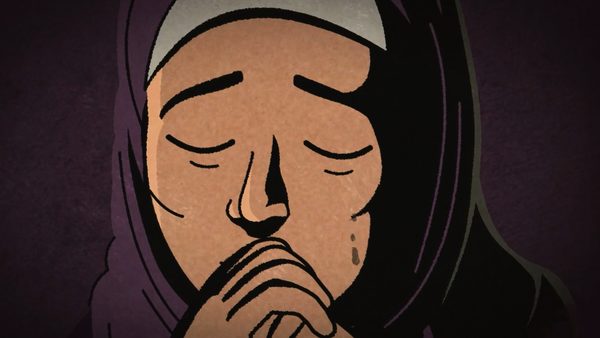
“These people have no humanity,” says Fatima.
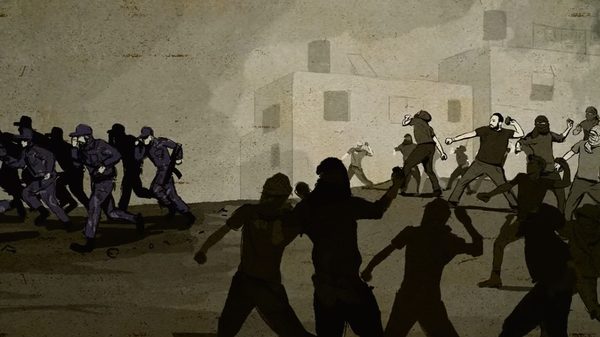
“It was like we relived the intifada, but not to resist occupation,” says Ahmed.
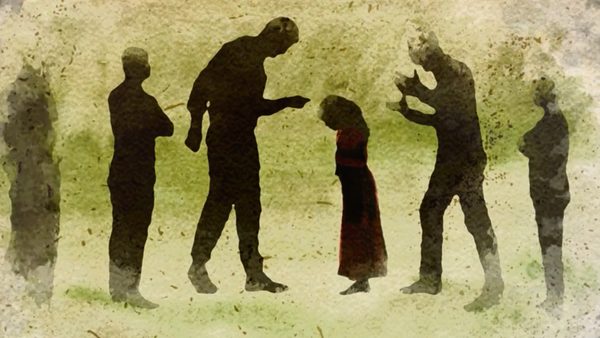
Mariam’s brothers told her they didn’t want any problems from Hamas.
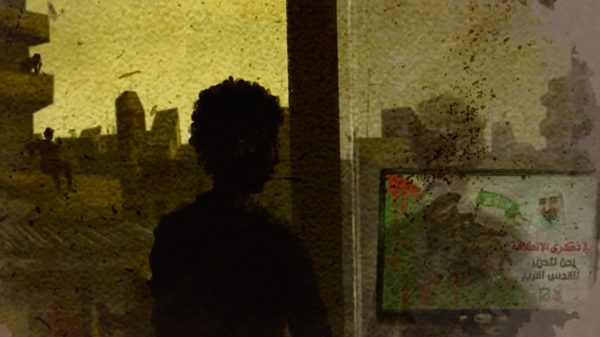
Isma’il feels sad for Gaza’s youth.
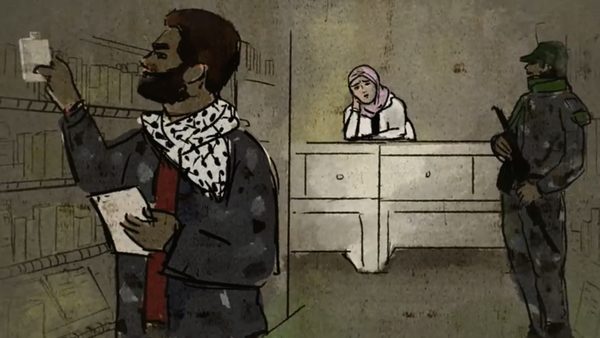
Basma was forced to close her pharmacy.
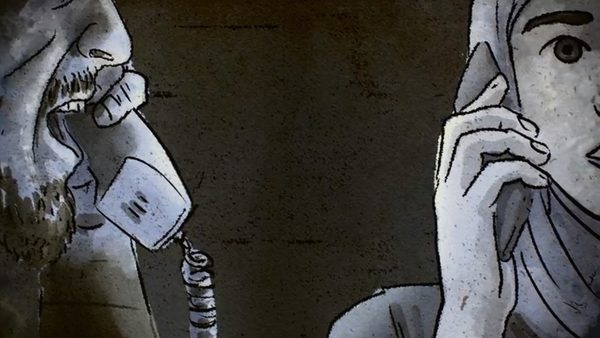
Maha was told “something bad might happen to your family”.
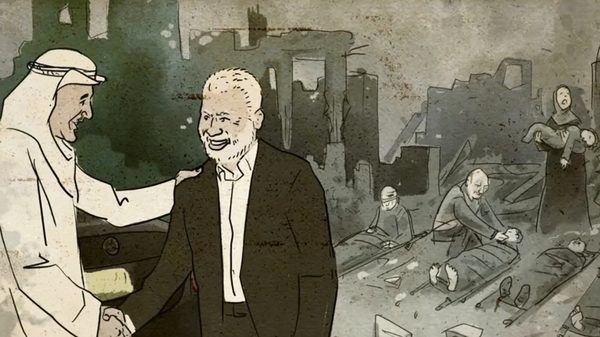
Hamas are the ones who benefit “and we get nothing,” says Othman.

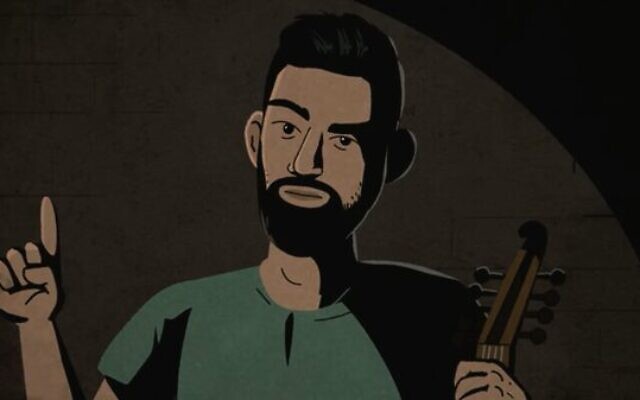
comments